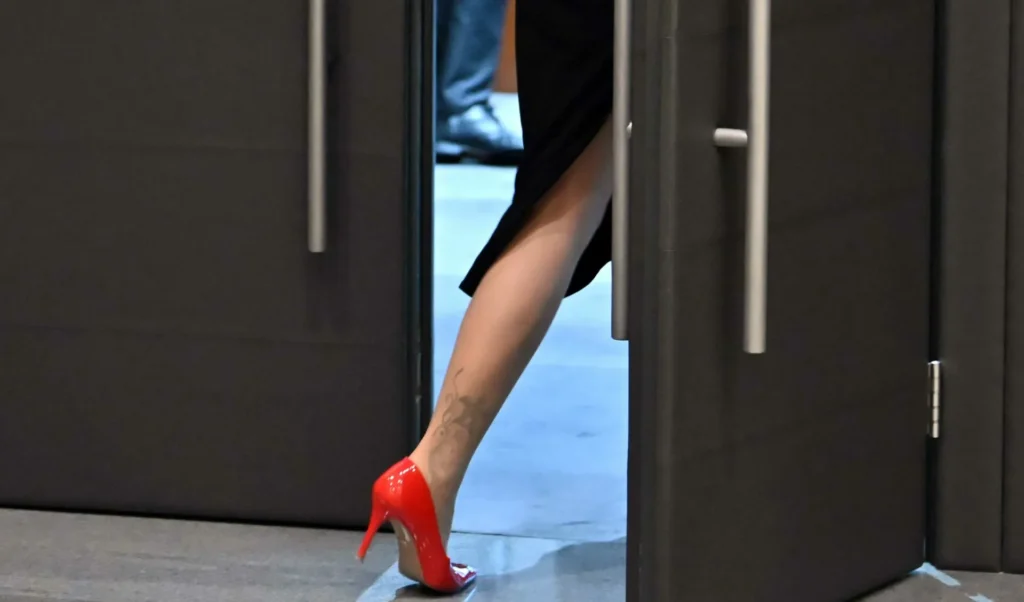The red shoes of the Speaker of the National Assembly, Urška Klakočar Zupančič, have recently become a museum piece. She herself donated them to the Tržič Museum, explaining that they had become a symbol of resistance. The contrast is striking: at the beginning of its mandate, the government of Robert Golob abolished the Museum of Slovenian Independence, thus sending the message that preserving the memory of a key historical moment in the history of the Slovenian nation had no place in a special museum, while the shoes in the colour that symbolises the red star, resistance and ideological symbolism, which foregrounds the values of the current government, have found their place in a museum. What does the first Prime Minister of Slovenia think of this; are these values more important to the current government than the values of Slovenian independence?
The first Prime Minister of Slovenia and long-time President of the veterans’ organisation, Lojze Peterle, said that it was culturally perverse that the red shoes deserved to be put in a museum, but Slovenian independence did not.
“I remember those shoes from her performance, how she danced in them. I said at the time that you can also celebrate Statehood Day in red shoes. But these shoes have very little in common with the shoemakers’ guild, and their problem is not the colour, but how that colour works in a certain context – as the colour of ‘our people’,” Peterle noted, adding that this is about “much more than just the shoes.”
He pointed out that the gesture can be seen as a symbolic humiliation of the values that were at the heart of independence. “It is culturally perverse that the red shoes deserve a spot in the museum but Slovenian independence does not. I understand the anti-sexism sentiment and things like that, but all this is in the context of the colour red that we know well – which is the symbol of the red star. It is also a mockery of Slovenian symbolism and an expression of a certain ideological arbitrariness,” he warned.
Čebine versus Poljčane
For Peterle, what is happening to us is particularly worrying. “What is happening to us is the Čebine versus Pojčane. If the ruling part of Slovenia, which received the democratic confidence of the people who voted for an independent Slovenia, is now acting against this will, something is seriously wrong. This means that they have not read the Constitution, the European Treaty or the Fundamental Charter of Human Rights. This is a kind of ideological arbitrariness.”
And when it comes to the question of whether the current government really emphasises ideological values more than the fundamental values of Slovenian statehood, Peterle replied that the comparison is difficult, that “independence is more than shoes – it is the will of the nation, and the lives that were lost for it. That is the face of this team, and that, in my opinion, is in stark contrast to what we plebiscitary decided. This does not seem like seriousness to me.”
Although Peterle noted that he has nothing against the dignity of women, he pointed out the hypocrisy. Urška Klakočar Zupančič fights against sexism, but she herself recently made sexist remarks against Member of Parliament Žan Mahnič, when assessing his masculinity. “We have already gotten used to double standards. After all, one might ask: What the hell happened to her? We are not such a terrible society that we need such a rebellion. We have a constitution, laws, European values – I don’t see the need for such a protest.”
Peterle went on to refer to the current police investigations against the President of the New Slovenia party (Nova Slovenija – NSi), Matej Tonin, who said that the surveillance of the ministry during his leadership was legal and the criminal charges were politically motivated. Peterle noted: “I only know what I read in the media. But the fact that the information was leaked to the public rather than to the accused himself says something. If a media headline reaches you before the official mail of an institution, that is significant.”
A. G.


